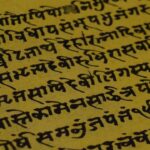Finding Harmony: The Synergy Between Music and Mathematics

Many people perceive mathematics and music as distinct disciplines, each requiring different skill sets and ways of thinking. However, there is a fascinating connection between the two fields that can greatly benefit individuals who aspire to be better at math. This blog post explores the intersection of mathematics and music, highlighting how learning music can enhance mathematical abilities and provide a unique perspective on problem-solving.
- Enhancing Pattern Recognition: Mathematics often involves recognizing and working with patterns, which is also a fundamental aspect of music. By learning to play an instrument or studying music theory, individuals develop a keen sense of recognizing patterns in melodies, rhythms, and chord progressions. This ability to identify and analyze patterns can be directly transferred to mathematical problem-solving, where recognizing patterns is crucial for solving complex equations or sequences.
- Developing Spatial Reasoning: Music and mathematics both rely on spatial reasoning skills. When reading sheet music, musicians must interpret symbols, notes, and rhythms in relation to each other, which requires spatial awareness and the ability to mentally manipulate patterns. Similarly, mathematics involves visualizing geometric shapes, spatial relationships, and transformations. The spatial reasoning skills honed in music can significantly aid in grasping mathematical concepts, such as geometry or trigonometry.
- Strengthening Numerical Skills: Mathematics is inherently numerical, and studying music offers ample opportunities to practice and improve numerical abilities. Musical notation involves understanding fractions, time signatures, and counting beats. Playing an instrument requires a sense of rhythm, timing, and subdividing notes into precise durations. These skills directly align with mathematical concepts such as fractions, ratios, and calculations. Regular exposure to these numerical elements through music can enhance an individual’s overall mathematical fluency.
- Cultivating Problem-Solving Skills: Both mathematics and music demand problem-solving skills, albeit in different contexts. In mathematics, complex problems are broken down into smaller, manageable steps to arrive at a solution. Similarly, musicians face challenges like deciphering difficult passages, improvising, or harmonizing. Through musical training, individuals develop patience, perseverance, and the ability to break down complex tasks into smaller components, all of which can be applied to mathematical problem-solving.
- Fostering Creativity and Critical Thinking: Music is an art form that encourages creativity and critical thinking. Composing music involves experimenting with different musical structures, harmonies, and melodies, while improvisation requires quick thinking and adaptability. Engaging in these creative processes nurtures an individual’s ability to think outside the box and approach problems from various perspectives—a skill that translates seamlessly into mathematical creativity and innovative problem-solving.
The connection between mathematics and music runs deep, offering a multitude of benefits for those looking to excel in both fields. By taking up music, individuals can enhance their pattern recognition abilities, develop spatial reasoning skills, strengthen numerical fluency, cultivate problem-solving aptitude, and foster creativity and critical thinking. Embracing music as a complementary discipline to mathematics opens up new avenues for learning, enabling individuals to tackle mathematical challenges with a unique perspective and heightened proficiency.








